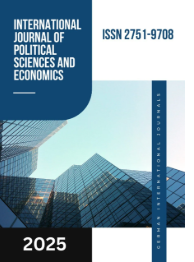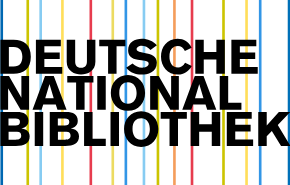EFFECTIVE METHODS OF NATIONAL VALUE-BASED ECOLOGICAL EDUCATION IN PRIMARY SCHOOL
DOI:
https://doi.org/10.55640/Keywords:
national values, ecological education, primary school, pedagogy, environment, sustainability, moral development, nature, tradition, teaching methods, culture, behaviorAbstract
This article explores the implementation of effective methods for ecological education in primary schools, grounded in national values. In the face of global ecological degradation, educating children about environmental responsibility through culturally relevant pedagogy becomes vital. The research investigates how integrating national traditions, customs, and folklore into ecological instruction enhances students' moral, emotional, and behavioral engagement. An experimental study involving 160 primary school pupils across three schools in Surkhandarya region was conducted. Both quantitative and qualitative methods were applied, including pre- and post-tests, observations, and interviews. The study found that students who participated in national value-based ecological activities demonstrated increased environmental awareness, respect for nature, and initiative in eco-friendly behavior. The results support the hypothesis that national values provide a meaningful framework for shaping ecological consciousness. The article offers pedagogical recommendations for embedding traditional ecological ethics into primary education, thereby fostering sustainable cultural-ecological integration from an early age.
References
1.Abduvahobov, A. Milliy qadriyatlar asosida ekologik tarbiya berish. – Toshkent: “Fan va texnologiya”, 2020. – 168 b.
2.Bozorova, G. R. Boshlang‘ich ta’limda tabiatga munosabatni shakllantirishda milliy qadriyatlarning o‘rni. // Ilmiy tadqiqotlar to‘plami. – 2023. – №2. – B. 45–51.
3.Karimova, S. Ekologik ta’limda badiiy-estetik yondashuvlar. – Toshkent: O‘qituvchi, 2021. – 144 b.
4.Nishonova, G. Maktabda ekologik tarbiya metodikasi. – Samarqand: Zarafshon, 2019. – 176 b.
5.Vygotsky, L. S. Mind in Society: The Development of Higher Psychological Processes. – Cambridge, MA: Harvard University Press, 1978. – 159 p.
6.Piaget, J. The Moral Judgment of the Child. – New York: Free Press, 1965. – 418 p.
7.UNESCO. Education for Sustainable Development Goals: Learning Objectives. – Paris: UNESCO Publishing, 2017. – 58 p.
8.Qodirova, M. Ekologik madaniyat va milliy an’analar uyg‘unligi. // Pedagogika fanlari jurnali. – 2022. – №4. – B. 37–43.
9.Safarov, B. Ota-onalar ishtirokida ekologik tarbiya samaradorligini oshirish. // Boshlang‘ich ta’lim – innovatsiyalar va amaliyot. – 2023. – №1. – B. 22–29.
10.Rasulova, D. Milliy qadriyatlar asosida boshlang‘ich sinf o‘quvchilarida ekologik tafakkurni shakllantirish. – Qarshi: Nasaf, 2022. – 136 b.
11.Braun, V., Clarke, V. Using Thematic Analysis in Psychology. // Qualitative Research in Psychology. – 2006. – Vol. 3(2). – P. 77–101.
12.Ganieva, Z. Early Childhood Environmental Education in Central Asia: Challenges and Prospects. // Eurasian Journal of Educational Research. – 2021. – Vol. 6, No. 1. – P. 60–69.
Downloads
Published
Issue
Section
License

This work is licensed under a Creative Commons Attribution 4.0 International License.
Authors retain the copyright of their manuscripts, and all Open Access articles are disseminated under the terms of the Creative Commons Attribution License 4.0 (CC-BY), which licenses unrestricted use, distribution, and reproduction in any medium, provided that the original work is appropriately cited. The use of general descriptive names, trade names, trademarks, and so forth in this publication, even if not specifically identified, does not imply that these names are not protected by the relevant laws and regulations.







